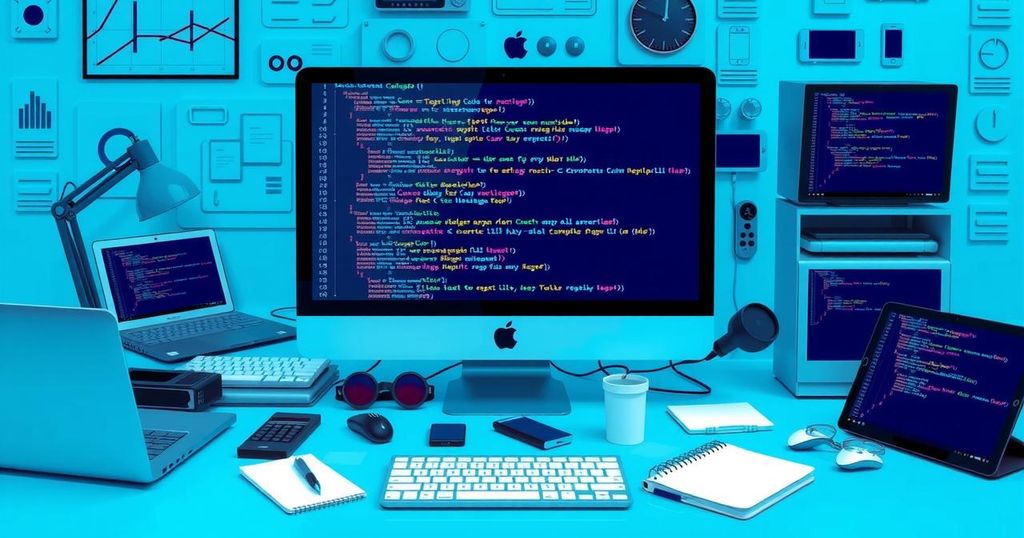Microsoft CEO Claims AI Writes Up To 30% of Code—Implications for Developers
Microsoft’s CEO announces AI now generates 20%-30% of its code at LlamaCon, raising concerns over new developer job prospects. AI’s role is growing in efficiency but still requires human oversight, particularly in complex coding languages like C++. The future of coding and job security for developers remains uncertain amid this shift.
In a revealing moment at LlamaCon, Microsoft CEO Satya Nadella shared that the tech giant leverages Artificial Intelligence to churn out 20% to 30% of its software code. This highlights a significant shift in the industry, as the integration of AI is changing how companies approach coding. It raises eyebrows about the future for new developers who might feel a wave of unease about job prospects as AI continues to advance in coding tasks.
A lot of firms are dipping their toes into AI, notably Google, which reported AI is responsible for generating about 25% of its new code. AI excels particularly at handling repetitive and data-heavy tasks, trimming inefficiencies, and affecting entry-level positions in software development. However, while AI-generated code has made advances, it still very much needs experienced developers to ensure that everything runs smoothly.
Nadella and Meta’s Mark Zuckerberg further discussed how their respective companies are adopting AI. Microsoft is seeing AI take on about a third of the code in its repositories, while specific figures from Meta were a bit scant. Instead, Zuckerberg outlined ambitions to create new iterations of their Llama AI models through AI technology, a rather interesting loop where AI aids AI development.
Interestingly, Nadella noted that AI does better spitting out Python code rather than C++. This could be due to Python’s friendlier syntax and dynamic typing capabilities, making it easier for AI to navigate. C++, on the other hand, is tangled in a messier world of low-level coding where errors can be daunting and automation is tricky. It probably wouldn’t be wise to let AI handle coding for something as crucial as the next Windows update.
Concerns loom, of course, about job losses for new programmers amid fierce competition. Developers really need to adapt; ignoring AI might not be the best path forward. Finding a balance is crucial—knowing the basics, effectively using AI, and honing critical thinking skills could be a developer’s golden ticket. The reality is, whatever these AI percentages are today, they’re likely to shift as the tech landscape evolves.
The embrace of AI in code generation by giants like Microsoft signals a transformative era for software development. While AI can enhance efficiency, it poses challenges for new developers who must adapt to the changing demands. Balancing foundational skills and AI utilization seems prudent in navigating this complex landscape, as the industry’s future remains in flux—but one thing’s for sure: AI is here to stay and will continue to evolve.
Original Source: www.tomshardware.com




Post Comment